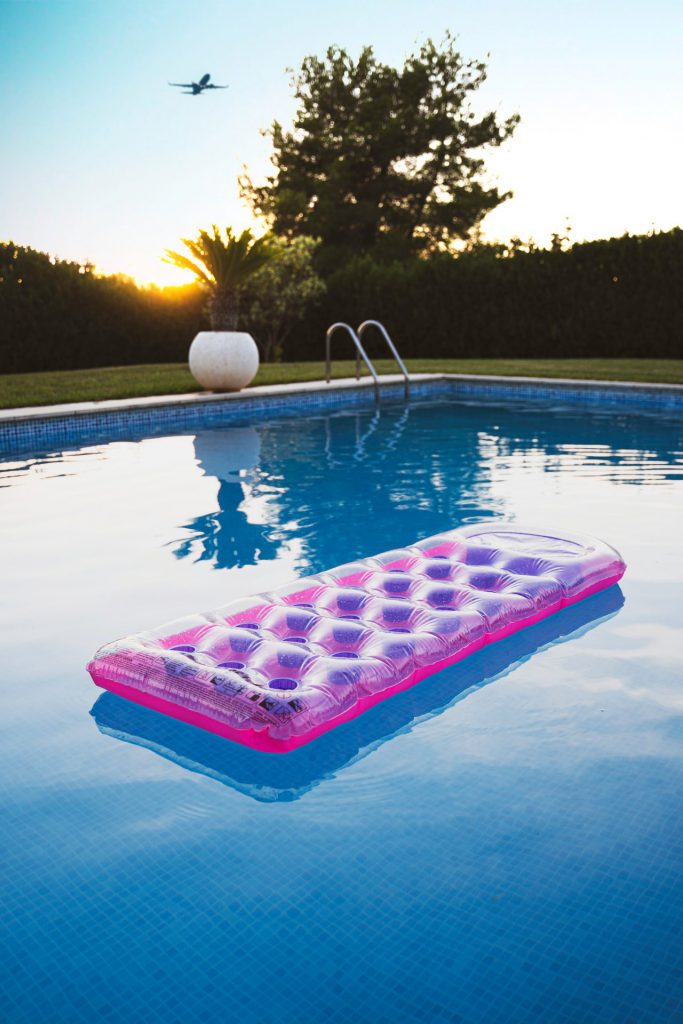5/22/2024
Swimming Pool Myths Debunked: Separating Fact from Fiction
Swimming pools are a beloved feature for many homeowners, providing relaxation, exercise, and fun. However, there are numerous myths surrounding pool ownership and maintenance that can lead to confusion and misinformation. In this blog post, we’ll debunk some of the most common swimming pool myths to help you enjoy your pool with confidence.

Myth 1: Saltwater Pools Are Maintenance-Free
Fact: Saltwater pools require less maintenance than traditional chlorine pools, but they are not maintenance-free. Saltwater systems still need regular monitoring and maintenance of pH levels, salt levels, and the salt cell. Additionally, saltwater can be corrosive to certain pool materials, requiring attention to pool hardware and surfaces.
Myth 2: Chlorine Pools Are Bad for Your Health
Fact: Chlorine, when used correctly, is safe and effective for sanitizing pool water. Problems arise when chlorine levels are not properly maintained. Over-chlorination or poor pH balance can cause skin and eye irritation. By regularly testing and adjusting your pool’s chemical levels, you can ensure a safe swimming environment.
Myth 3: Swimming in a Pool with a Cold Is Dangerous
Fact: Swimming with a mild cold is generally safe, as long as you feel up to it. However, if you have a fever, respiratory infection, or any condition that could be worsened by physical activity, it’s best to rest and recover. Pools are typically not a source of infection transmission due to proper chlorination.
Myth 4: Clear Water Means a Clean Pool
Fact: Clear water is not always an indicator of a clean pool. Harmful bacteria and contaminants can be present even if the water looks clear. Regular testing and chemical treatments are necessary to ensure the water is truly safe for swimming.
Myth 5: You Only Need to Check Your Pool’s pH and Chlorine Levels
Fact: While pH and chlorine levels are crucial, they are not the only factors to monitor. Total alkalinity, calcium hardness, and cyanuric acid levels also play important roles in maintaining balanced and healthy pool water. Regular testing of all these parameters ensures optimal water quality.
Myth 6: Backwashing the Filter Is Enough to Keep It Clean
Fact: Backwashing is an essential part of filter maintenance, but it’s not always sufficient on its own. Depending on the type of filter you have (sand, cartridge, or DE), you may need to manually clean or replace the filter media periodically to ensure efficient operation.
Myth 7: Swimming After Eating Causes Cramps
Fact: The idea that you must wait 30 minutes to an hour after eating before swimming is largely a myth. While heavy exercise on a full stomach can be uncomfortable, moderate swimming is generally safe. Listen to your body and swim at a pace that feels comfortable.
Myth 8: You Can Skip Pool Maintenance in the Winter
Fact: Even if you’re not using your pool in the winter, it still requires maintenance. Proper winterization prevents damage from freezing temperatures and keeps the water chemistry balanced, making it easier to reopen the pool in the spring.